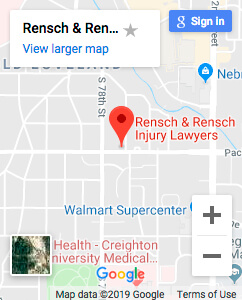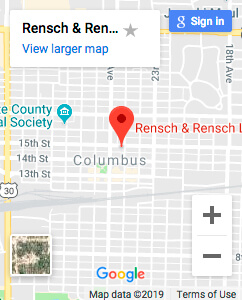Safety Tips for Driving in the Cold
OMAHA, Nebraska. Temperatures across the U.S. have dropped significantly in the past few weeks, bringing shocking and record-breaking cold temperatures across North America. QZ reports that Canada is colder than Mars. It has snowed in Florida. Sharks have been washing up on beaches, frozen solid. However, the freezing cold also brings some practical considerations for drivers. For example, QZ reports that when temperatures drop below 0 degrees Fahrenheit road salt becomes ineffective. Salt water has a freezing point around 0 degrees Fahrenheit, meaning that at these temperatures, even the salt water freezes. For drivers trying to get from point A to point B in below-0 temperatures, this could mean icier and more hazardous roads.
So, what can you do to protect yourself when driving in extreme cold weather? The National Highway Traffic Safety Administration offers some practical safety tips for cold weather driving. Here are a few key things to keep in mind.
- Make sure you give your car a winter tune up. In below freezing temperatures, it can be incredibly dangerous to become stranded in a stalled car. Avoid breakdowns altogether by making sure your car is good to go. Your mechanic can check your oil, batteries, brakes, air pressure in your tires, and other key components.
- Clean your car of snow and ice debris before driving. In addition to clearing your windshield and windows, you should clear your headlights, taillights, and also scrape any excess snow buildup off your car’s roof. If you come to a sudden stop, this snow can fall over your windshield or become a projectile, endangering other drivers and pedestrians.
- Check your windshield wiper fluid. The National Highway Traffic Safety Administration notes that your windshield wiper fluid can become empty even after a single major snowstorm event. Check your fluid periodically.
- Check tire pressure. In cold weather, your tire pressure will drop.
- Pack your car for the weather. Bring gloves, shovels, ice scrapers, blankets, snacks, water and a first aid kit. Jumper cables and a phone battery also can be helpful.
- Drive carefully. Even a light dusting of snow can be dangerous, especially if snow plows or salt hasn’t been placed on the road, yet. Allow ample space between your car and the car in front of you.
- If you are stranded, call for help. If you have road flares, use them. Keep your inner dome light on so people can see you. Run your car only as long as you need to, in order to prevent the risk of carbon monoxide poisoning.
- If you are involved in an accident, call the police, get a police report, and consider calling a personal injury lawyer in Omaha, Nebraska, like the attorneys at Rensch & Rensch Law.
Driving in colder weather can bring with it many additional hazards. Plan ahead before you leave home and know what to do if you get into trouble. Finally, if you or a loved one has been hurt in a cold weather car accident, consider speaking to the car accident lawyers at Rensch & Rensch Law.



